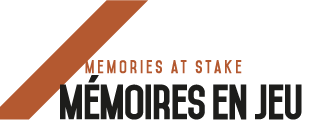LA REPRÉSENTATION DU TRAVAIL FORCÉ DANS LES RÉCITS DE CHALAMOV « LA BROUETTE I » ET « LA BROUETTE II » /La souffrance des détenus dans les camps du Goulag était due, outre la sous-alimentation chronique, aux longues journées de travail forcé humiliant et monotone. Or, la littérature résiste à l’évocation de cet interminable processus : un texte littéraire est davantage apte à représenter l’effort bref et intense. L’action des récits portant sur les camps se déroule souvent pendant les heures qui suivent le labeur, les pauses, ou bien les moments o. le protagoniste accomplit un travail plus léger. Cette récurrence peut donner abusivement l’impression que ces coupures constituent l’essence de la vie concentrationnaire. On verra dans le présent article comment Chalamov relève le défi de restituer, par l’art, l’expérience d’un ouvrier poussant la brouette dans une mine d’or de la Kolyma.
Mots clés : travail forcé, Kolyma, récit, intrigue, récurrence
WORKS CITED
Bal, Mieke, Narratology : Introduction to the Theory of Narrative, 2nd edition, Toronto, University of Toronto Press, 1997.
Demidov, Georgy, Chudnaia planeta, Moscow, Vozvrashchenie, 2008.
Esipov, Valery, Shalamov. Moscow, Molodaia gvardiya, 2012.
Genette, Gérard, Narrative Discourse : An Essay in Method, Trans. Jane E. Lewin, Ithaca, Cornell University Press, 1980.
Iser, Wolfgang, The Act of Reading : A Theory of Aesthetic Response, Baltimore, The Johns Hopkins University Press, 1978.
Kukulin, Ilia, Mashiny zashumevshego vremeni : Kak sovetskii montazh stal metodom neofitsial’noi kul’tury, Moscow, Novoe literaturnoe obozrenie, 1915.
Levi, Primo, If This Is a Man. Truce, Trans. Stuart Woolf, New York, Abacus, 1987.
McLuhan, Marshall, Understanding Media : The Extensions of Man, New York, McGraw-Hill, 1964.
Mikhailik, Elena, “Varlam Shalamov : The Poetics of New Prose”, PhD dissertation, New South Wales University, 1998.
Prince, Gerald, “The Disnarrated”, Style 22.1, 1988, 1–8.
Scarry, Elaine, The Body in Pain : The Making and Unmaking of the World, New York, Oxford University Press, 1985.
Shalamov, Varlam, Works in six volumes, Moscow, Terra, 2004.
Toker, Leona, Return from the Archipelago : Narratives of Gulag Survivors, Bloomington, Indiana University Press, 2000.
Volkova, Elena, The Tragic Paradox of Varlam Shalamov, Moscow, Respublika, 1998.
